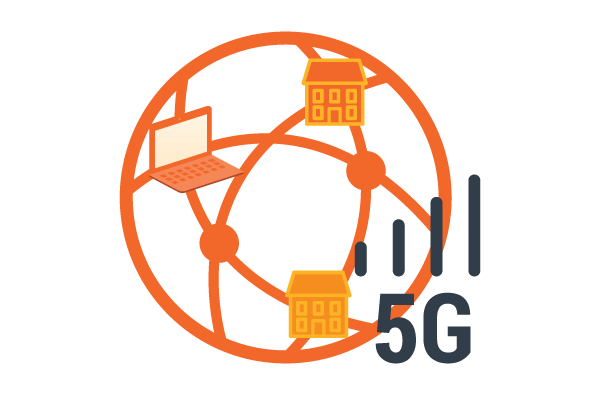Rise by Six: Your Daily Dose of Inspiration
Explore insights and stories that elevate your day.
The 5G Effect: Why Slow Internet Will Be a Thing of the Past
Unleash the future! Discover how 5G will obliterate slow internet and transform your online experience forever.
Exploring the Lightning Speeds of 5G: How It Will Transform Our Internet Experience
As the world increasingly embraces digital connectivity, the introduction of 5G technology marks a significant leap forward in mobile communications. With lightning-fast speeds that can reach up to 10 Gbps, 5G promises to revolutionize how we access and share information. Unlike its predecessors, 5G operates on a broader spectrum of frequencies, allowing for increased data transfer rates and lower latency. This transformative capability will not only enhance everyday internet usage but also pave the way for innovations in fields such as autonomous driving, smart cities, and the Internet of Things (IoT).
The potential applications of 5G are vast and varied, significantly impacting our internet experience. For instance, streaming high-definition content will become seamless without buffering, while virtual reality and augmented reality applications can achieve new levels of interactivity. Furthermore, the reduced latency will greatly benefit online gaming, providing instantaneous feedback suitable for competitive play. As we explore the lightning speeds of 5G, we are not just witnessing a technological upgrade; we are on the brink of a complete transformation in how we connect, communicate, and engage with the digital world.

The Future of Connectivity: What 5G Means for Everyday Internet Users
The advent of 5G technology represents a significant leap forward in connectivity for everyday internet users. Unlike its predecessor, 4G LTE, which struggles with bandwidth in crowded areas, 5G promises to deliver lightning-fast speeds, lower latency, and greater capacity. This enhanced performance means that users can expect to experience seamless streaming of high-definition content, quicker downloads, and more reliable connections even in densely populated locations. As more devices become interconnected, the implications of 5G will touch every aspect of our digital lives, from gaming to remote work.
Moreover, the potential of 5G extends beyond mere speed improvements; it paves the way for revolutionary applications such as the Internet of Things (IoT), smart cities, and augmented reality. Imagine a world where your refrigerator can automate grocery orders, your car can drive itself, and public services operate more efficiently through real-time data sharing. This new connectivity could also enhance virtual and augmented reality experiences, making them not just feasible but a part of daily life. As we embark on this 5G era, it’s essential for users to stay informed and adaptive to reap the maximum benefits of this transformative technology.
Is Slow Internet Becoming Obsolete? Unpacking the Promises of 5G Technology
As we step further into the digital age, the question arises: is slow internet becoming obsolete? With the rollout of 5G technology, the answer is leaning towards a resounding yes. 5G promises lightning-fast speeds, lower latency, and a more reliable connection, making it a game-changer for consumers and businesses alike. This new generation of wireless technology not only enhances the way we stream videos and play online games but also supports the growing demand for connected devices in the Internet of Things (IoT) landscape. As a result, the days of frustrating buffering and sluggish downloads may soon be a thing of the past.
While slow internet service has long been a persistent issue, particularly in rural areas, 5G technology aims to bridge this gap. With its vast capacity and improved efficiency, 5G is set to deliver high-speed internet access to underserved locations, democratizing connectivity. As cities and towns invest in this infrastructure, users will experience smoother online experiences and enhanced opportunities for remote work, learning, and entertainment. Thus, as we unpack the promises of 5G, it becomes clear that the era of slow internet could very well be nearing its end, paving the way for a future powered by rapid and seamless connectivity.